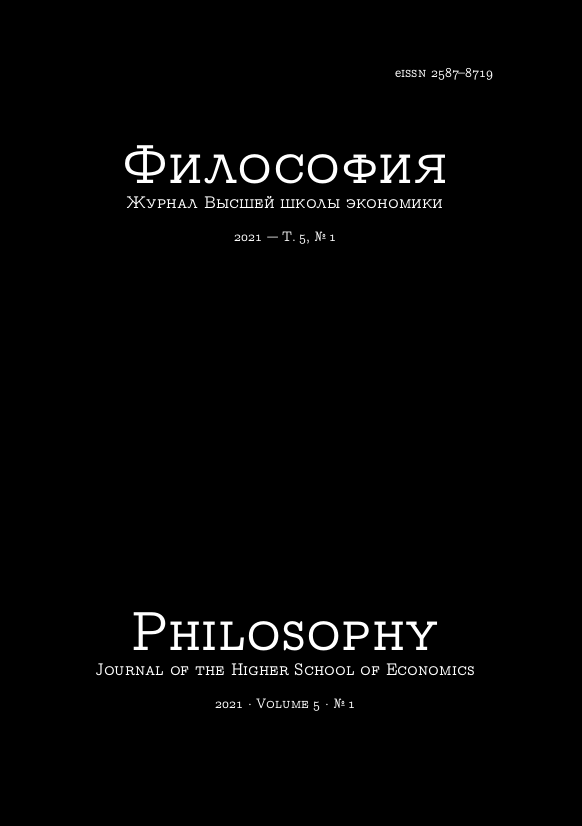The “Analytic” Line of the Modern Stoicism: L. Backer, W. Irvine, M. Pigliucci
Abstract
This article is dedicated to the “analytic” line in the philosophy of modern stoicism. Modern stoicism is developed as the philosophy of life but in this relation, it is understood as not the collection of speculations around such concepts as “life”, “human” and so on but rather as the philosophy about well living. It indicates that the goal of modern stoicism is integrating the eudemonic stance in the analytic normative ethics in which this movement was raised. Modern stoics explains the applicability of stoic ethics for 21st-century people in the way that their view on the world as they think is similar to such of Hellenistic people in many respects. On the theoretical level, modern stoicism is the attempt of application of ethics of late Stoa to the contemporary naturalistic worldview constituting around the data of natural science. This task is realized by representing the ethics of Rome stoicism as a collection of certain psychological practices. By means of it, it turns out possible to represent stoic ethics as some kind of the “framework” of behavior that is potentially compatible with various worldviews. But in this advantage of modern stoicism there is its main trouble also. Cleared out from metaphysics and based on certain obvious practical premises, this framework of sensible staid behavior tells us nothing about the world and hence couldn't be used as the full-blown worldview. However, the very raising of this movement indicates the need to explicitly formulating the problem of worldview within the analytic philosophy.
Downloads
Copyright (c) 2021 Philosophy. Journal of the Higher School of Economics

This work is licensed under a Creative Commons Attribution-NonCommercial 4.0 International License.






